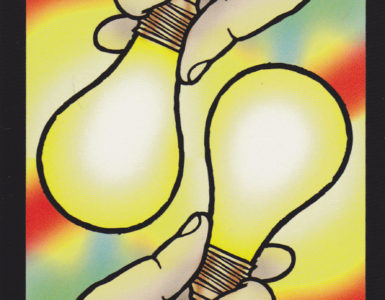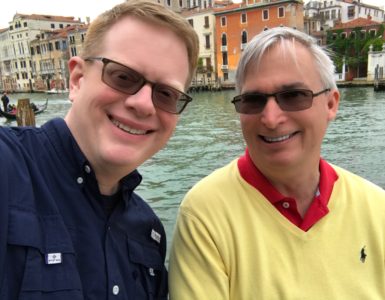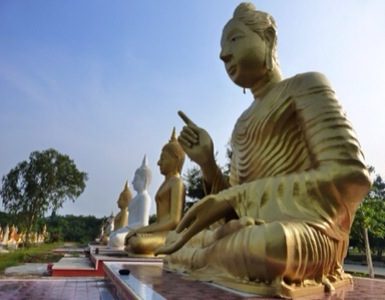Dan Buettner’s been studying the residents of Ikaria, who stay sharp and sexually active into their nineties and beyond. His conclusions:
The $70 billion diet industry and $20 billion health-club industry … persuade us that if we eat the right food or do the right workout, we’ll be healthier, lose weight and live longer. But these strategies rarely work. Not because they’re wrong-minded: it’s a good idea for people to do any of these healthful activities. The problem is, it’s difficult to change individual behaviors when community behaviors stay the same …
The big aha for me, having studied populations of the long-lived for nearly a decade, is how the factors that encourage longevity reinforce one another over the long term. For people to adopt a healthful lifestyle, I have become convinced, they need to live in an ecosystem, so to speak, that makes it possible. As soon as you take culture, belonging, purpose or religion out of the picture, the foundation for long healthy lives collapses.
LIke so many Americans, I want a magic bullet: a pill, a simple set of guidelines, five minutes of exercise that transform me from couch potato to hot potato.
The uncomfortable truth: longevity and health depend on perhaps a dozen interdependent factors. A diet based primarily on vegetables, with little sugar and lots of unheated olive oil, helps. Exercise, particularly in the form of walking and meaningful work (like tending a garden) helps. Drinking ten ounces of coffee daily and drinking herbal tea at night, eating honey in the morning, and having one to three glasses of wine at dinner with good friends helps.
Daily naps help. A spiritual practice, including anything from meditation to regular attendance at Sunday services, helps. A supportive community of like-minded people — people who really know you, who love you, who check on you, and, yes, who provide subtle pressure on you to stick with the group — helps.
Problem is, Americans have built a society which lacks or actively subtracts these factors from daily life. Our meat-heavy diets are laced with sugar, salt, and fat. Exercise is decoupled from daily life; we pay to do it, in temples dedicated to it, embracing efficiency over effectiveness. We work long days, and the only employees who take long, regular breaks are the smokers. We guzzle soda. We lace our coffee and tea with toxic sweeteners. We drink wine alone.
We drift away from community, sealing ourselves behind garage doors and pigeon-holing ourselves in glass-and-steel condos next to neighbors whose names we do not know. We leave churches, because their tendency toward an ugly, rabid, anti-human, anti-intellectual approach to life no longer serves our craving for connection with God and each other.
No wonder the Ikarians outlive us.
It does has me wondering, though: could a few like-minded people form a community — supported on-line, but manifested in the real world — where the best of all these habits become a part of the fabric of life again?




Another great post, Mark. (Postmark!).
There are so many online communities, many of which are obvious(Facebook, Twitter, Pinterest), many of which aren't (like private pages within the aforementioned), and I'm guessing many of them provide the opportunity for this kind of support system to be created, but aren't fully realized.
As a people person, I love these opportunities to interact since they are so readily available. But also as a people person, I see some shortcomings as it relates to the meaning and depth of what I think you are alluding to above. I wonder how much support you are thinking of coming from the online channel? Would love to talk more about this over 1-3 glasses of wine and some vegetables some day! Thanks for your blog!